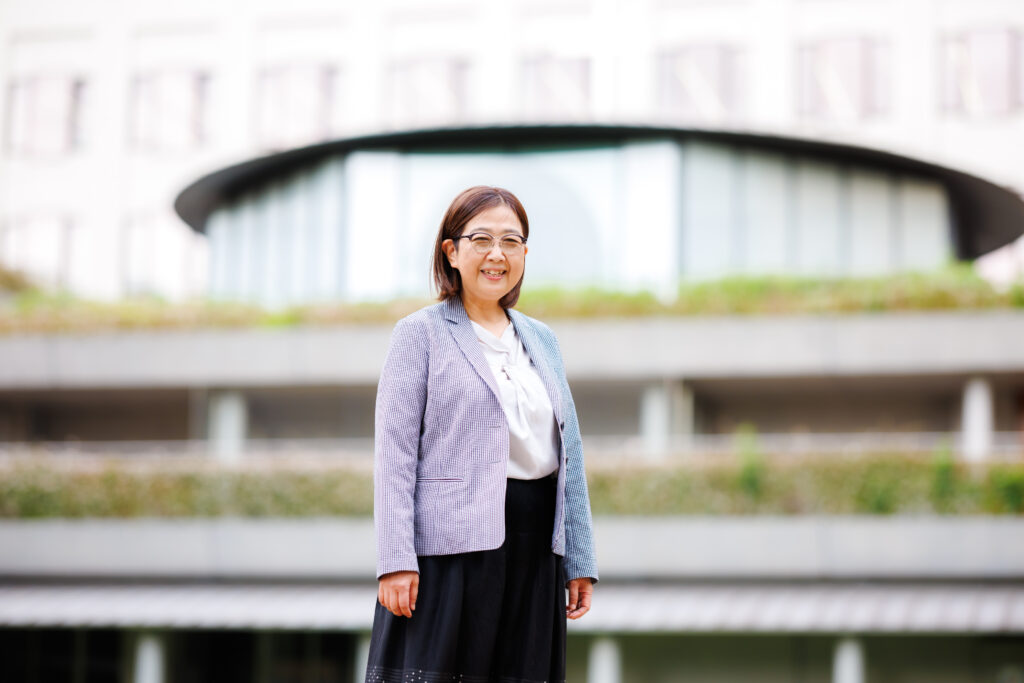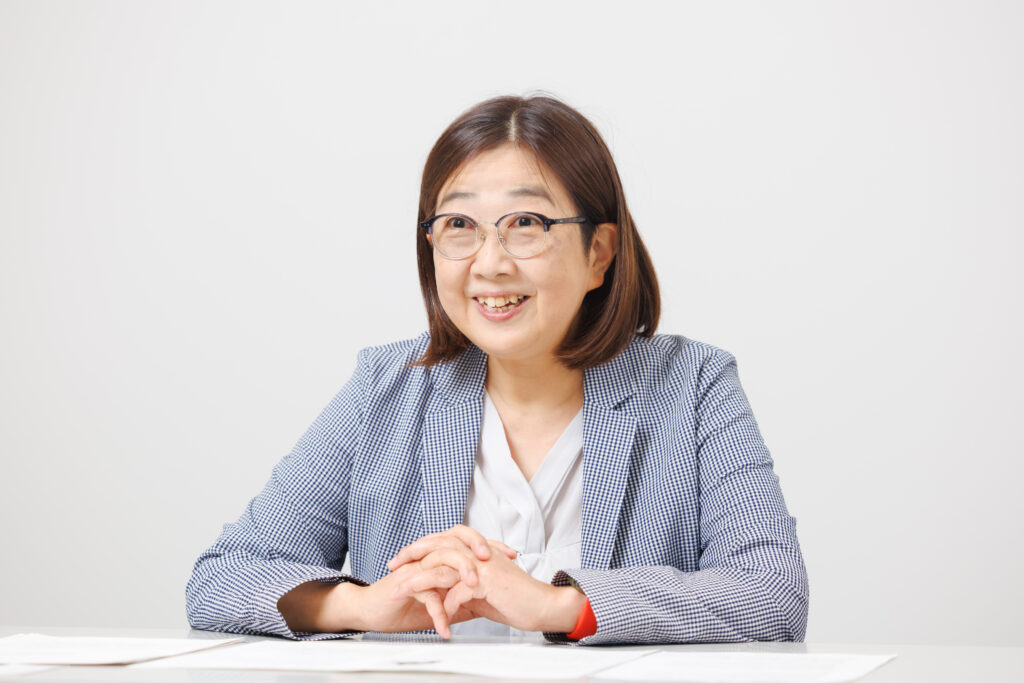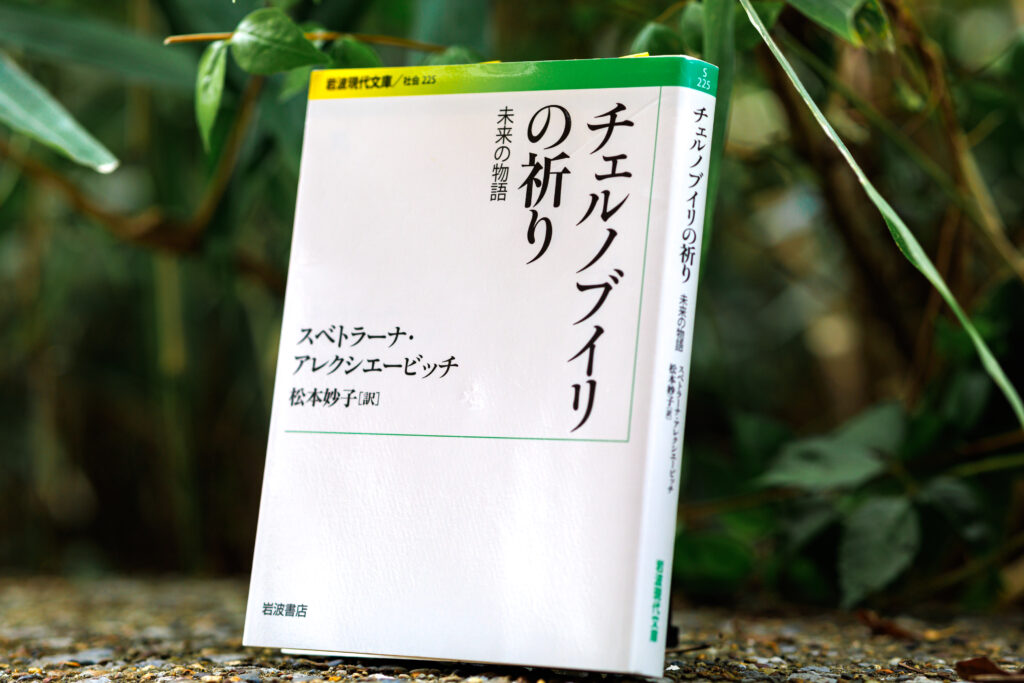
Associate Professor Keiko Hara of the Faculty of Theology specializes in missiology, the study of the history and methodology of Christian missions. Through interviews with missionaries, who are tasked with spreading the faith, Hara investigates what significance Christianity has in present-day society.
Approximately 2,000 years have passed since Jesus Christ walked the earth. Jesus himself left no written records; however, his disciples put his words down in writing, these writings were read by succeeding generations, who then re-wrote these writings in their own languages. Throughout its history, Christianity has been understood within the context of the times.
Theology is not only a subject that entails the study of texts left behind by Christian believers; it is also a subject that asks how we ought to live today.
The importance of dialogue: using interviews to understand the faith of today

I specialize in missiology, which involves researching Christian propaganda. To carry my out research, I have conducted interviews with a total of about 50 present-day Christians and missionaries. Interviews of course involve listening to the stories of the interviewees; however, over the course of these interviews, I have come to realize that the very act of listening is an extremely theological behavior.
Listening to the paths taken by individual believers is different to researching an existing text, since it requires understanding the faith these individuals possess, and the belief they have in Christianity. I myself am a modern-day Catholic—in my role as interviewer, I ask questions, listen attentively, and enter into dialogue, and in so doing I touch upon a question that has not been set down in words: “what do the people of today believe in?” I listen to the stories told by other people, and I tell my own stories. The stories that take shape through this collaborative enterprise are then told to a third person and so on. I came to realize that this is one of the ways by which religion propagates.
The idea of “equal before God” is also found in the Japanese constitution
Religion changes dramatically according to the times. Values change as well. I believe the Crusades of the Middle Ages to be unqualified violence; and if I went back in time to the religious reforms of the 16th century, I am certain I would have stood beside Luther—the founder of Protestantism—in criticizing the Roman Catholic Church.
Theology is not simply a matter of believing ancient religious views and passing them on to future generations. Instead, the task of a theology researcher is to consider what Jesus would do if he were alive today, and act as an intermediary for people who are alive today.
For example, the “right to life” and the “respect for fundamental human rights” enshrined in the Japanese Constitution have their roots in Christianity’s “equal before God.” Some 2,000 years ago, Jesus said that all people are equal—in so far as all people are loved equally by God. This idea has, albeit in slightly different form, been incorporated into our modern-day legal system.
But it is not just law. We encounter countless divisions in our lives: gender, background, occupation, nationality, and race being just a few examples. These social divisions can also be overcome by the humanism of Christianity. Regardless of whether they are believers or not, this can help people in modern-day society establish spiritual foundations.
Friend or foe, of every nationality and social standing—2,000 years ago, Jesus declared that we are all equal before God. Now, I wish to use what might be described as the anarchic appeal of his teachings to create opportunities for people to interact.
The book I recommend
“Voices from Chernobyl,”
by Svetlana Alexievich, Japanese translation by Taeko Matsumoto, Iwanami Shoten

Authored by Svetlana Alexievich, winner of the Nobel Prize for Literature, this book is a collection of painstaking interviews with people who lived through the 1986 Chernobyl disaster. I remember being brought to tears as I read it on the train. A collaboration between Alexievich, the interviewer, and the storytellers, the interviewees, this book taught me what an interview is.
-
Keiko Hara
- Associate Professor
Department of Theology
Faculty of Theology
- Associate Professor
-
Received her M.A. from the Graduate School of Education, Hiroshima University, and a second M.A. from the Faculty of Theology and Religious Sciences, Institut Catholique de Paris. Received her Ph.D. in Theology at the Graduate School of Theology, Sophia University. Appointed to her current post in 2018. Member of Sœurs Auxiliatrices Japon.
- Department of Theology
Interviewed: September 2022